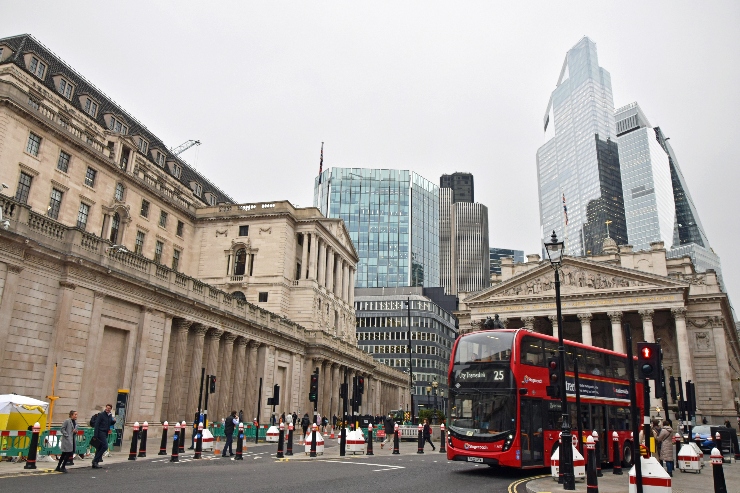Energy prices have soared over the past months. Energy suppliers are running into financial trouble because they have agreed to sell energy at less than the price it now costs them to buy it. Some suppliers have gone bankrupt, and more may follow. Tsjalle van der Burg proposes a new plan to help prevent such bankruptcies, discussing the cases of the Netherlands and the UK.
The Dutch situation
In the Netherlands, 56 per cent of households have a fixed-rate energy contract for one to five years, and most often for three years or more. In 44 per cent of the cases, the contracts have variable rates, which the provider can change every six months. The current energy price explosion has caused providers to make losses on both types of contracts. They can stop part of the losses on January 1, when they are allowed to increase their prices for variable-rate contracts as they see fit—the Netherlands have no price cap. However, the fixed-rate contracts can lead to losses for a much longer period of time.
Although no Dutch energy supplier has gone bankrupt yet, a small supplier has recently informed its clients that it will terminate their fixed-rate contracts unless they pay a higher price. The Autoriteit Consument & Markt (ACM), a legal authority, has immediately judged that this is an illegal breach of contract. What the small supplier will do next is not known; it may declare bankruptcy. In the future, there may be other bankruptcies, especially if energy prices remain high.
Dilemma: breach of contract or bankruptcy
I agree with the judgement of the ACM that an energy provider cannot suddenly increase the price for clients with a fixed-rate contract who do not want to terminate their contract. I must add that I have a fixed-rate contract myself, until 2026. When I signed it, in 2020, both parties knew that energy prices might increase more than the market expected. To hedge myself against this risk, I promised to pay a relatively high price for five years, knowing I might lose on this. The other side of the coin is that the provider, and therefore its shareholders, have to pay for the price explosion now. Since 1973 we have known that energy prices could explode. The company cannot claim these are unforeseen circumstances.
However, if my provider is not allowed to unilaterally raise the prices for fixed-rate contracts, it may go broke in case prices remain high. I then have to turn to another supplier, paying higher prices there. So, I face a dilemma. The dilemma for the authorities is much bigger still, since bankruptcies of energy suppliers harm many clients, creditors, and shareholders, while the energy sector may no longer be able to offer security of supply to all households and firms.
Let the client be a (temporary) shareholder
To get out of this dilemma, I have a proposal. To begin with, all energy providers would be given the opportunity to breach fixed-rate contracts by unilaterally increasing prices if this is necessary to prevent bankruptcy. For doing this, a provider in trouble needs permission from the ACM Dutch authority. ACM should also ensure that this firm’s new prices will not be higher than the prices in the variable-rate contracts of other providers. If the provider then goes bankrupt anyway, so be it. The market should retain its disciplinary function.
A provider that breaches contracts this way should calculate the resulting loss for each of the clients concerned. It should communicate the amount to the clients and say that they can use it to buy the company’s shares (without voting rights), which can be sold later on. That would be the only possibility for compensating for the loss.
In practice, the following rules could apply:
In 2021 and 2022 clients pay a higher tariff than originally agreed, knowing they will be compensated in the form of shares later on. The number of shares they get is based on the company’s stock price on January 1, 2023. Some weeks later, every client is informed about the loss that he has made as a result of the breach of contract by the energy provider, and about the number of shares he has received for that. For instance, client Jones may be informed that he has lost 604,15 euros in 2021 and 2022, and that, given the share price of 2,01 euros on January 1, he has become the owner of 300,572 shares of the energy provider. The above assumes that the provider is financially healthy in 2023 (possibly due to a share issue in which shares are sold to non-clients). If financial recovery takes longer, the dates can be adapted.
Clients do not get physical possession of the shares; they are only officially informed of their new possession. When the provider is financially healthy in 2023, it offers its clients a number of dates for selling their shares (to prevent all clients selling on the same day). After each client has chosen his day, his shares are sold to the provider at the closing price of the stock market on this day. The revenues from the sales are for the client, as compensation for the breach of contract. The provider does not pay out any dividends until all clients have sold their shares.
In case the provider (or its parent company) is not listed on the stock exchange, its clients can sell their shares on one single day. The value of the company on that day, and the price of one share, are determined by experts from ACM. The same holds for the share price on the day clients obtain their shares (1 January 2023).
Preventing bankruptcies in the UK
Unlike the Netherlands, the UK has a price cap for consumers. With it, providers cannot increase prices for variable-rate contracts (first of all) to the extent necessary to stop their losses. This may help explain many bankruptcies, but this essay is too short to discuss the price cap itself.
Given the price cap, the proposal above is useful for the UK too. Present prices for fixed-rate contracts are below the cap and breaching such contracts by increasing prices up to the cap (with compensation in the form of shares) will allow providers in trouble to improve their finances to a significant extent. This can help avoid bankruptcies. It might also decrease pressures to abandon the price cap.
Conclusion
This article has proposed that energy suppliers be allowed to quickly increase their prices for fixed-rate contracts if they were to go bankrupt otherwise. However, they should compensate their clients for the breach of contract by giving them shares of the company. The higher prices for the fixed-rate contracts will improve the finances of the providers concerned and help avoid bankruptcies. In the end, it is (mainly) the shareholders of the providers that pay for the energy price explosion.
The largest energy providers are too big to fail. However, this does not mean that their clients—or the government, if the crisis expands—should pay for preventing bankruptcies. The shareholders should pay. Indeed, this is exactly how capitalism is meant to be.
♣♣♣
Notes:
- This blog post represents the views of the author(s), not the position of LSE Business Review or the London School of Economics.
- Featured image by Kelly Sikkema on Unsplash
- When you leave a comment, you’re agreeing to our Comment Policy.





